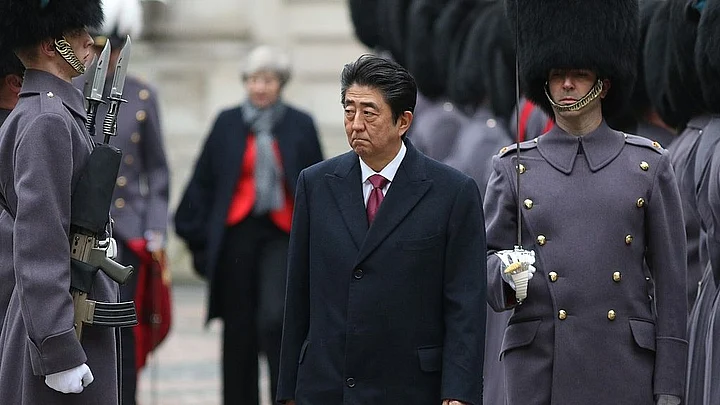Japanese Prime Minister Shinzo Abe resigned from his post on Friday, 28 August, because of health issues, Reuters reported.
According to media reports, Abe said his chronic illness has resurfaced. He had earlier reported to having ulcerative colitis since he was a teenager, but had also said the condition was controlled with treatment.
Prime Minister Narendra Modi tweeted saying he was "pained" to hear about Abe's ill-health. "In recent years, with your wise leadership and personal commitment, the India-Japan partnership has become deeper and stronger than ever before. I wish and pray for your speedy recovery," Modi tweeted.
“I cannot be prime minister if I cannot make the best decisions for the people. I have decided to step down from my post,” Abe was quoted as saying on Friday.
The news of his plan to resign was first reported by the state media earlier on Friday, according to IANS.
This development comes after Abe’s visit to a Tokyo hospital twice over the past two weeks.
Who Will Succeed Abe?
According to The Guardian, candidates likely to replace Abe as leader of Liberal Democratic party (LDP) and prime minister include his finance minister, Taro Aso, and Shigeru Ishiba, a longtime critic. For the moment, Abe has declined to comment on who it would be.
Abe is expected to stay on until his party elects a new leader, who must then be approved by parliament, reported The Guardian.
Previous Resignation
This is the second time that the prime minister will step down from his post over a medical issue.
Abe resigned in 2007 because of an inflammatory bowel disease, after only serving a year in office.
He returned to the top job in 2012 after a landslide election win in the Lower House.
(With inputes from Reuters, IANS, India Today and The Guardian)
(At The Quint, we question everything. Play an active role in shaping our journalism by becoming a member today.)
